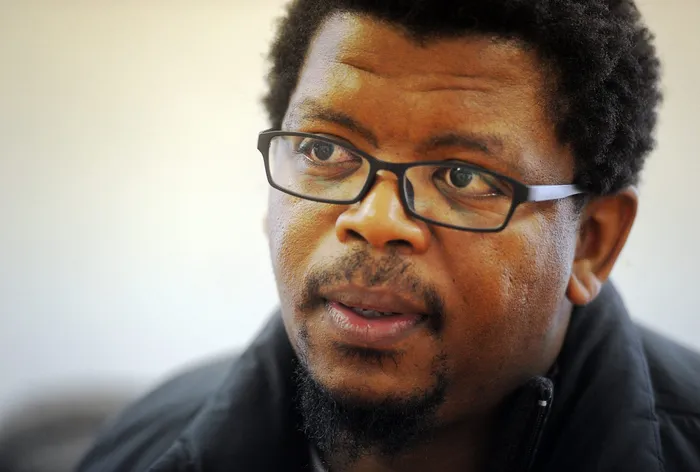Court visits site where Cradock Four were found, as inquest reopens
Cruelty of apartheid regime

Lukhanyo Calata — son of Fort Calata — said the family is hopeful that the truth will finally be revealed.
Image: File Picture: David Ritchie
The inquest into the brutal killing of the Cradock Four, a group of anti-apartheid activists murdered in 1985, resumed this week in Gqeberha. As part of the proceedings, the court visited the site where their burned bodies were discovered nearly 40 years ago.
The Cradock Four — Matthew Goniwe, Fort Calata, Sparrow Mkonto, and Sicelo Mhlauli — were key members of the United Democratic Front and other community organisations fighting apartheid. Their deaths shocked the nation and became a symbol of the cruelty of the apartheid regime.
This latest inquest, which was officially reopened in 2024, aims to uncover the full truth about their abduction and murder by apartheid-era security police.
Although a previous inquest in the 1990s concluded that security forces were responsible, no one has ever been criminally charged for the killings.
On Tuesday, the court visited the former home of Matthew Goniwe in Cradock.
This was followed by a trip on Wednesday to the remote location where the bodies of the four men were found, near Bluewater Bay outside Gqeberha.
These site visits, known as “inspections in loco,” allow the court to better understand the events that led to their deaths. Legal experts say these visits help paint a clearer picture of the geography and timelines involved, and may assist in testing the statements of witnesses and officials from the time.
The Cradock Four were last seen alive on the evening of 27 June 1985, travelling from a meeting in Port Elizabeth (now Gqeberha) back to Cradock. The next day, their burnt-out car was found, and the bodies of Goniwe, Calata, Mkonto, and Mhlauli were discovered nearby, showing signs of torture and execution.
The Truth and Reconciliation Commission (TRC), which operated in the 1990s, heard chilling testimony that confirmed the four were targeted for their political activism. Some former apartheid officers confessed to involvement but were denied amnesty for not fully disclosing their roles.
Family members of the victims have long called for justice and accountability. Speaking outside the court earlier this week, Lukhanyo Calata — son of Fort Calata — said the family is hopeful that the truth will finally be revealed.“For 40 years, we’ve waited for justice.
''We hope this process will finally expose who gave the orders, who carried them out, and why,” he said.The National Prosecuting Authority (NPA) has said that this inquest could pave the way for prosecutions if new evidence is uncovered or old evidence is confirmed under oath.
The inquest is expected to continue for several more weeks, with former security police, political figures, and forensic experts set to testify.
